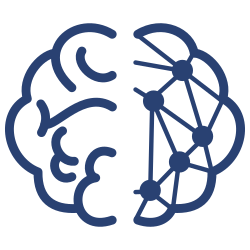NeuroFedora update: week 45
In week 45:
- libneurosim was pushed to the stable repositories. NEST does not build with it yet, because NEST tries to link with both libneurosim and its Python bindings during the build. I've filed a ticket upstream to clarify if this is correct. I have already filed a PR that puts the libneurosim Python bindings in the right location.
- python-libNeuroML was pushed to the stable repositories and is now ready to use.
- biosig is a WIP. It required libb64 which was approved this week and is currently in testing.
- python-duecredit is currently in testing. It should be pushed to stable in a few days.
- python-visionegg-quest is currently in testing. It should be pushed to stable in a few days.
- python-nibabel was updated to the latest version and is currently in testing.
- python-grabbit was updated to the latest version and is currently in testing.
- On the way to building fsleyes, fslpy, fsleyes-props, fsleyes-widgets have all been reviewed, approved, and are now in testing.
- python-nitime was approved and is in testing.
- python-nilearn was approved and is in testing.
- python-petlink was approved and is in testing. This also required an update to python-simplewrap. Upstream was really quick to make the required fixes for us.
All new packages must go through Fedora's QA (testing) process before being made available to end users in the repositories. You can help test these packages following the instructions here.
A lot of the software we worked on this week was related to neuro-imaging, and fortunately, a lot of it was Python based which is usually quite simple to build. The coming week, though, I intend to work on NEURON. Unfortunately, NEURON isn't the easiest to build:
- It depends on iv, which bundles a really old version of libtiff. I've filed a ticket here about this, but have not had the time to port the code to the newest version of libtiff.
- NEURON bundles Random123, which was relatively easy to remove. However, NEURON also bundles a really old version of the SUNDIALS libraries, and updating the code to use the latest versions is not straightforward. I have filed an issue about it here now. This is based on my initial investigations into building NEURON. So there's a chance that more work will need to be done once these issues are solved.
There is a lot of software available in NeuroFedora already. You can see the complete list here on Fedora SCM. Software that is currently being worked on is listed on our Pagure project instance. If you use software that is not on our list, please suggest it to us using the suggestion form.
Feedback is always welcome. You can get in touch with us here.
The Fedora community: enabling Open Science
While the NeuroFedora SIG is actively working on these packages, it would not be possible without our friends in the Fedora community that have helped with the various stages of the package maintenance pipeline.
- eclipseo, churchyard, blackfile, zbyszek have reviewed these packages before approving them for inclusion in Fedora.
- The awesome folks at releng have, of course, been super quick with SCM requests.
We're grateful to the various upstreams that we're bothering with issues, and everyone in the Fedora community (including people I may have missed) for enabling us to further Open Science via Fedora.

Comments